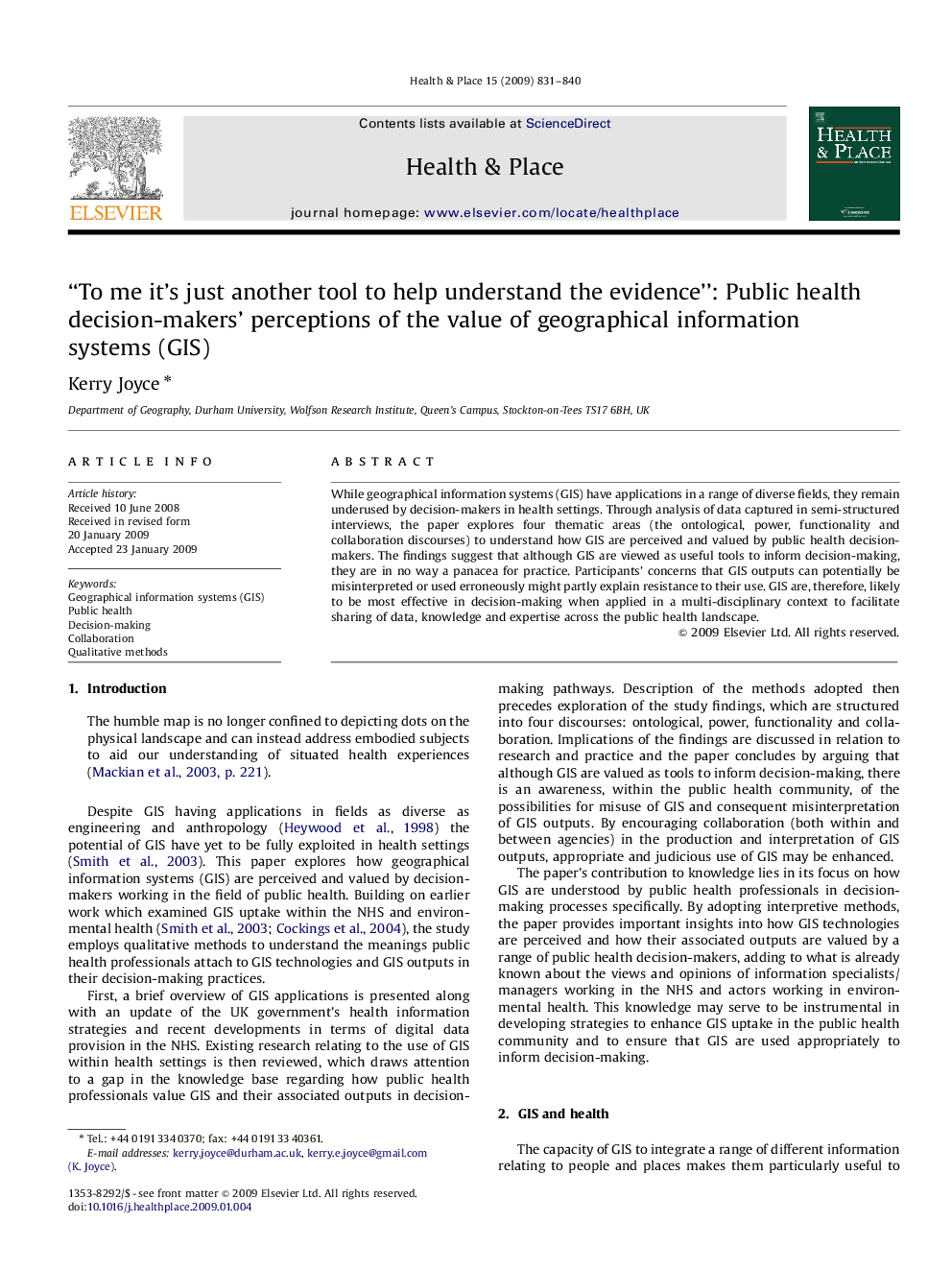| Article ID | Journal | Published Year | Pages | File Type |
|---|---|---|---|---|
| 10502812 | Health & Place | 2009 | 10 Pages |
Abstract
While geographical information systems (GIS) have applications in a range of diverse fields, they remain underused by decision-makers in health settings. Through analysis of data captured in semi-structured interviews, the paper explores four thematic areas (the ontological, power, functionality and collaboration discourses) to understand how GIS are perceived and valued by public health decision-makers. The findings suggest that although GIS are viewed as useful tools to inform decision-making, they are in no way a panacea for practice. Participants' concerns that GIS outputs can potentially be misinterpreted or used erroneously might partly explain resistance to their use. GIS are, therefore, likely to be most effective in decision-making when applied in a multi-disciplinary context to facilitate sharing of data, knowledge and expertise across the public health landscape.
Keywords
Related Topics
Health Sciences
Medicine and Dentistry
Public Health and Health Policy
Authors
Kerry Joyce,
